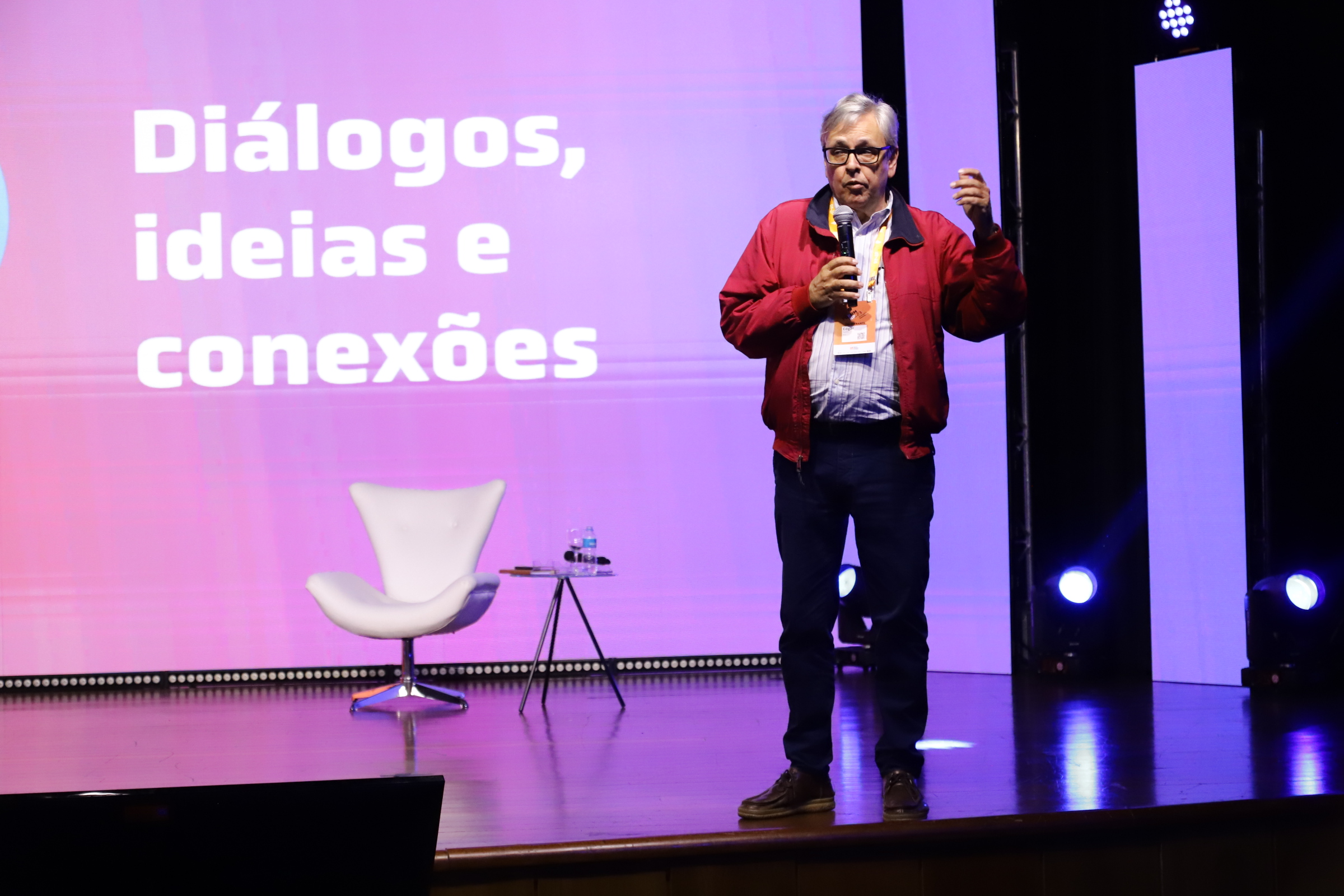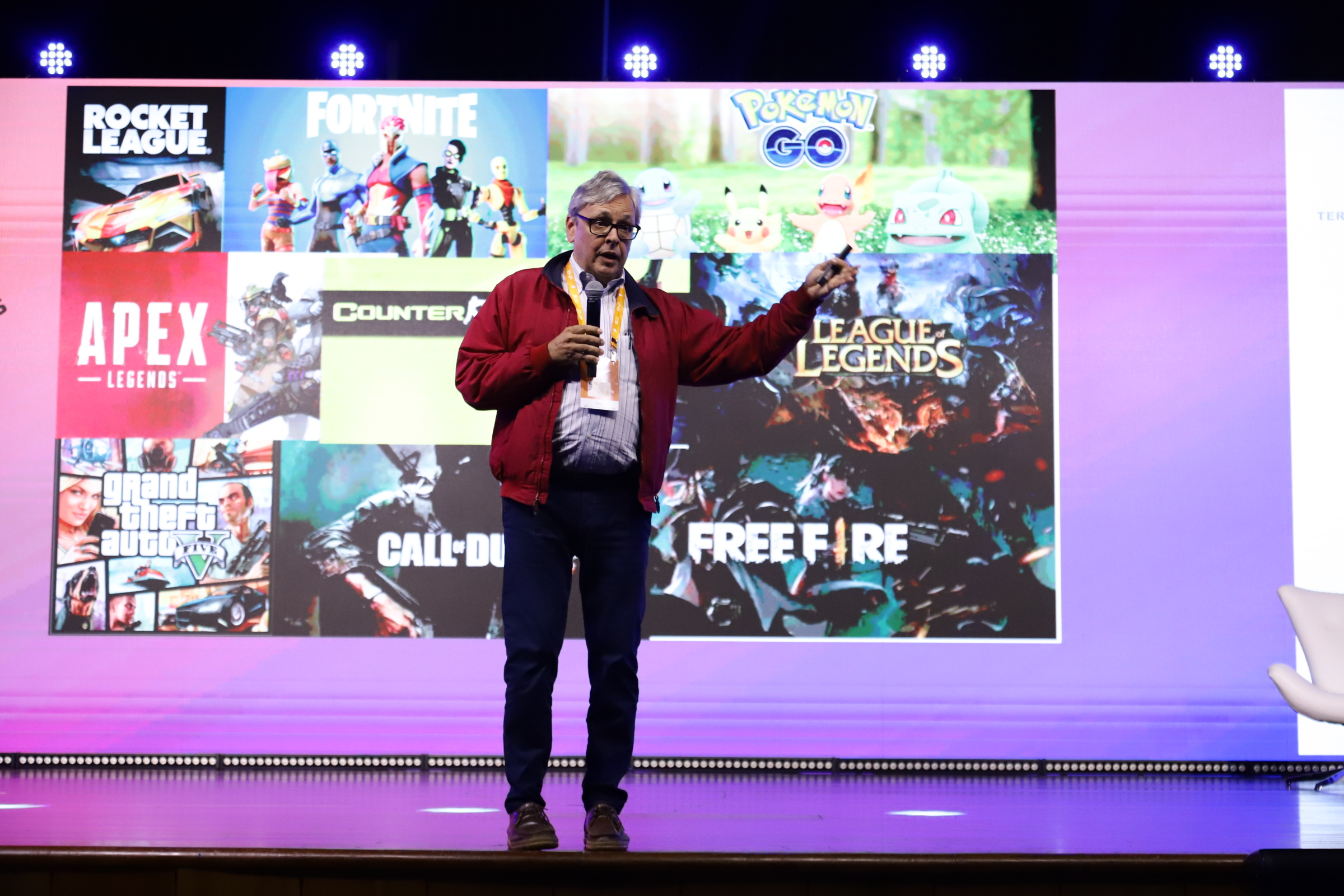RNP Forum: Edgar Lyra brings philosophy to reflect on the impacts of technology on human existence
Keynote highlighted the importance of education for a healthier relationship with artificial intelligence
“In addition to moral and political issues, there is an ontological problem triggered by the ubiquity of new technologies. We are changing the way we perceive time, space, the world, cause and effect relationships”. It was with this reflection that professor Edgar Lyra Netto, director of the Department of Philosophy at PUC-Rio, began the special closing session of the RNP 2023 Forum. Lyra Netto took the audience on a philosophical tour about the conditioning power that new technological tools, especially those that use artificial intelligence, have an impact on our existence.
The keynote speaker highlighted that this phenomenon is not new, having only become more evident with the popularization of generative artificial intelligence applications, such as Chat GPT, since the end of 2022. As defined by Lyra, this tool that has become so widespread in recent months, would be just the “tip of the digital iceberg”.
Among the many effects of this daily technological framework, the professor highlighted the acceleration of everyday life. “The accelerated pace of life cannot be thought of as a mere coincidence of this entire [technological] development. Perhaps we should think about a concept of efficiency that is not so linked to the concept of speed”, suggested Lyra Netto.
So what would be the best way to relate to these technologies? The keyword is regulation, understood by the teacher as a triad formed by excellent technical control, adequate national and transnational legislation and education, in its broadest sense.
"We need to train more than just technology users"
In relation to technical control, Lyra Netto sees an important role for RNP, as an institution capable of thinking and helping to execute a Brazilian project in which technological development plays in favor of a more equitable society focused on social well-being.
Regarding legislation, the philosopher defines it as “absolutely necessary” in the construction of a balanced digital ethos – but makes it clear: it alone is not enough. New laws that define limits for technologies must be anchored, first of all, on the third and most important point: education.
This, in fact, occupies a prominent place in Lyra Netto's thinking. On the side of higher education teaching and research, the philosopher highlighted the need for academics to question their own relationship with technology and reflect on current changes in the production of knowledge.
But it is in basic education that the philosopher sees the key to a healthier relationship with technology. For Lyra Netto, it is dangerous to believe that it is enough to teach children to operate the most recent and relevant technology in the technology scene. “We need to train more than just technology users. We need to talk to young people so that they learn to be surprised, not to be passive, not to simply dance to the music,” he concluded.

